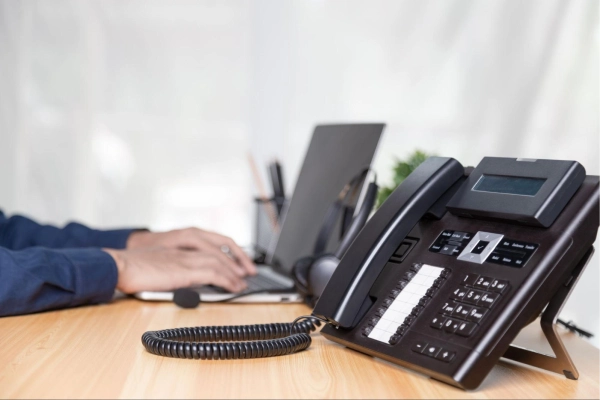Understanding CCTV Laws and Regulations in Dubai: What You Need to Know
In a city like Dubai, CCTV surveillance is vital for maintaining public safety and security. With more businesses and residences opting for these security measures, it’s crucial to understand the legal framework governing CCTV camera installation. Knowing the laws ensures that your surveillance practices are effective and compliant, protecting both property and privacy. This blog aims to inform readers on compliance obligations and provide a comprehensive picture of the legislation in existence. By following these guidelines, you can employ CCTV cameras to improve security while staying within legal limits.
Overview of CCTV Regulations in Dubai
The Dubai Police plays a crucial role in regulating CCTV systems throughout the city. They set the standards and guidelines that both businesses and residents need to follow, ensuring that CCTV camera installation is not only legally compliant but also effective in boosting security. Adhering to these regulations isn’t just about following the rules; it’s about creating a safer environment for everyone.
When it comes to data protection, compliance with the UAE’s Data Protection Law is paramount. This legislation aligns with international standards, safeguarding individual privacy while allowing the use of CCTV for security. Choosing a reputable CCTV installation company in Dubai that adheres to these laws is essential for lawful surveillance. Beyond legalities, balancing security needs with privacy rights is vital. Effective surveillance systems must respect personal privacy while providing robust security, ensuring a harmonious blend of safety and individual rights. Partnering with security systems companies in Dubai can help ensure that your surveillance setup meets all legal requirements while effectively protecting your property.
Registration and Licensing Requirements
Before setting up your CCTV system, it’s essential to obtain the permits from the relevant authorities. This step ensures that you comply with both legal and technical standards, which is vital for protecting your property and personal rights. The permit process is designed to ensure that your CCTV camera installation meets all the local requirements, helping to avoid any legal issues down the line. It’s about ensuring your surveillance system is installed correctly and operates within the law, giving you peace of mind.
When it comes to the actual installation, it’s crucial to hire licensed installers. Using a licensed CCTV installation company ensures your system meets all regulatory standards. Licensed professionals are trained to follow the specific guidelines and regulations set by the authorities, guaranteeing a compliant and effective surveillance system. Working with reputable security systems companies in Dubai means that your installation will be done right the first time, minimizing any potential issues and ensuring that your property is well-protected. These companies bring expertise and reliability, ensuring your CCTV system is functional and fully compliant with all legal requirements.
Placement and Use of CCTV Cameras
When setting up CCTV systems, it’s important to understand that different rules apply depending on whether you cover public or private spaces. These distinctions help ensure that surveillance is used appropriately and that individual privacy is respected. Here’s what you need to know about the key aspects of these regulations:
Public vs. Private Spaces
The regulations for CCTV camera installation in public spaces are much stricter to protect individual privacy. These areas require careful consideration to ensure people’s privacy rights are not infringed upon. On the other hand, private spaces offer more flexibility as long as privacy laws are still respected and the cameras are used responsibly.
Notice and Consent
Informing individuals about CCTV surveillance is crucial. Clear signage indicating the presence of cameras helps maintain transparency and comply with legal requirements. This ensures that everyone is aware of the surveillance measures in place, fostering a sense of security and trust.
Prohibited Locations
Certain areas, like bathrooms and changing rooms, are completely off-limits for CCTV cameras. These restrictions are essential to protect the privacy of individuals in sensitive areas and ensure that surveillance is used appropriately and ethically. Adhering to these regulations ensures that your CCTV camera installation respects privacy while providing effective security.
Data Storage and Retention Policies
When it comes to storing CCTV footage, following the guidelines for retention periods is crucial. These guidelines dictate how long you should keep the footage, ensuring it is available for security purposes when needed and helping you avoid any legal issues. It’s not just about having the data on hand; it’s about maintaining an organized and compliant system that respects privacy and legal requirements. Generally, footage should be kept for at least 30 days, however this can depend on your local rules.
Limiting access to stored footage is equally important. Ensuring that only certain employees have access to the data promotes security and privacy by preventing unauthorised use or publication of sensitive information. Here are a few key guidelines:
- Only authorized personnel should have access to the CCTV footage.
- Regular audits should be conducted to ensure access control measures are followed.
- Access logs must be maintained to track who views the footage and when.
Implementing robust data security measures like encryption, access controls, and backup procedures is vital. These measures protect the stored footage from unauthorized access and ensure that the data is securely backed up and recoverable in case of loss. Key security measures include:
- Encrypting CCTV footage to prevent unauthorized viewing.
- Setting up access controls to limit the people who can view or manage the footage.
- Regularly backing up footage to secure storage locations to prevent data loss.
By adhering to such practices, you can ensure your CCTV system is both effective and compliant with regulations set by security systems companies in Dubai.
Compliance Audits and Inspections
Conducting regular audits is crucial for ensuring your CCTV system remains compliant with local regulations. These audits help assess whether your CCTV camera meets all legal requirements, and they can identify areas that might need improvement. Regularly checking your system ensures compliance and enhances the overall effectiveness of your surveillance, giving you peace of mind that your security measures are up to standard.
Failing to comply with CCTV regulations can lead to serious consequences, including substantial fines and potential legal action. Noncompliance not only has a financial impact, but it may also interrupt business operations and harm your reputation. It’s essential for businesses to understand these risks and take steps to ensure their CCTV systems meet all legal requirements. Partnering with reputable security systems companies can help you navigate these regulations, keeping your business safe and compliant.
Case Studies and Examples
Various sectors, including retail, hospitality, and government, have implemented comprehensive compliance measures for CCTV systems. For example, retail stores often install cameras at entrances, exits, and checkout areas to deter theft and monitor employee activities. Hospitality businesses, like hotels, use CCTV to ensure guest safety and protect property, while government buildings rely on surveillance to maintain public security and monitor sensitive areas. These measures highlight the importance of adhering to CCTV regulations to ensure both security and privacy.
CCTV systems in residential properties must also meet specific regulations to ensure safety and respect residents’ privacy. This includes proper camera placement, clear signage to inform residents of surveillance, and ensuring that footage is only accessible to authorized personnel. Properly installing and managing these systems is crucial for creating a safe living environment while upholding privacy standards.
Mr. Rehman owns a small retail store in Dubai. Before installing CCTV cameras, he faced several issues, including shoplifting and occasional disputes between customers and staff. To address these problems, he hired a reputable CCTV installation company. The presence of cameras acted as a deterrent to potential shoplifters, significantly reducing theft incidents. Additionally, having footage of customer interactions helped resolve disputes quickly and fairly, as the recorded video provided clear evidence of what transpired. By partnering with a reputable security systems company, Mr Rehman ensured that his surveillance setup was not only effective but also fully compliant with local regulations. This proactive approach enhanced his store’s security and provided peace of mind to both customers and staff.
Best Practices for CCTV Compliance
Seeking legal advice is essential for ensuring compliance with CCTV regulations. Legal experts can offer useful regulatory advice, assisting businesses and people in navigating the complexity of CCTV laws. This proactive step ensures that your CCTV camera installation meets all legal requirements, protecting you from potential fines and legal issues. Consulting with professionals can save you headaches down the line, ensuring your surveillance system is effective and compliant.
Educating your staff on CCTV regulations and privacy laws is equally important. Employees benefit from training programmes that help them in understanding what their duties are in maintaining compliance with surveillance systems. By ensuring that your team is well-informed about the legal aspects of CCTV use, you can uphold both privacy and security standards. This knowledge empowers your staff to handle the system correctly and respond appropriately to any issues that may arise, contributing to a safer and more secure environment. Partnering with reputable security systems companies in Dubai can also provide additional resources and support for employee training, further enhancing your compliance efforts.
Understanding the laws and regulations governing CCTV camera installation in Dubai is essential for both businesses and individuals. Compliance ensures that surveillance systems are effective and legally sound, balancing security needs with privacy rights. It’s important to regularly review your CCTV systems and consult with experts to stay compliant. By following the guidelines, you can ensure your CCTV installation company in Dubai provides a system that meets all legal requirements.







